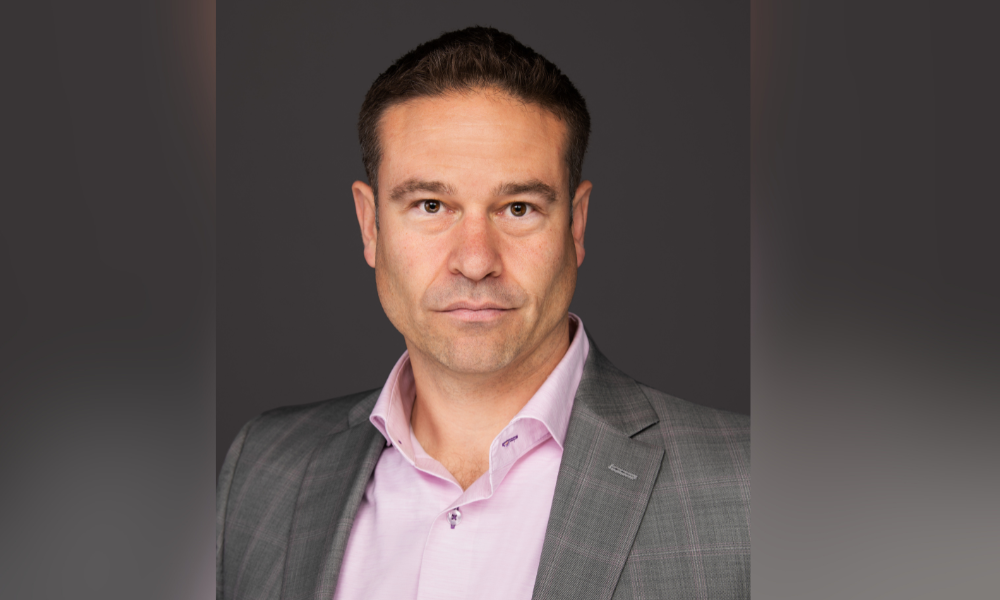'I see it as an essential strategy for recruiting, developing and retaining purposeful and satisfied employees'

A career development strategy can be a useful tool for retention and recruitment, but there are other benefits for employers.
Canadian HR Reporter spoke to Candy Ho, board vice-chair at CERIC — a Toronto-based nonprofit organization that is running Cannexus, a career development conference, from Jan. 24 to 26, 2022. Candy is also an assistant professor at the College of Arts, University of the Fraser Valley in British Columbia.
Q: How can an employee career development strategy benefit an organization?
A: “It’s extremely important for both short-term and long-term strategy. I think employees come to our organization wanting to do good, utilize their talents, develop skills, and expand their network. That ties in with career development, because it's allowing people to find their purpose in the work that they do in a way that's fulfilling.
“I see it as an essential strategy for recruiting, developing and retaining purposeful and satisfied employees, because employees are recruited to your organization and they're sold on your mission. But that's only one part. it's about continuing that relationship, helping them develop their skills and help them be the best employees they can be. Everything relates to HR — fulfillment in the workplace, how they're recruited, how they're retained — it's all career development.”
Now is the time to restart conversations about personal goals and professional development, says a consultant.
Q: What role should HR play in career development?
A: “If you look at the employee life cycle, from recruitment, to staying with an organization and exiting, I think of those as three boxes in career development. In recruitment, it's understanding perspective and motivation — what motivates them to wake up and go into work every day. And that expands to current employees as well.
“I see the role of HR, in addition to ongoing training, learning and development, is continuing to have those conversations to get at the purpose and motivation of employees, because they could be very different for employees that are a few years in the organization who might be progressing, and they're happy but they're wondering what else might be out there.
“HR professionals play such a huge role in being ambassadors of their organizations, they can coach employees to support their development, because everybody will likely come with individual needs for growth. And once you tap into people's motivation and find out what is it that they love about working in their organization, it gives you insights about how you can shift the organizational culture.”
Q: How important are ‘soft skills’ and how can companies develop them in employees?
A: “Zabeen Hirji — who is now a special advisor for Deloitte and used to be the chief HR officer for RBC — challenged us to not call them ‘soft skills’ anymore because the word ‘soft’ gives a negative connotation that they’re easier than technical skills. She encouraged us to call them ‘human skills’ or ‘power skills.’
“The consensus that I get from people, from HR, is that we should no longer be calling them ‘soft skills’ because we have underestimated and undersold their potential. You can take those skills anywhere, no matter what role, no matter what organization, those are critical skills. Being able to collaborate, communicate, adapt, problem solve, take the initiative and self-direct. I think part of soft skills is reflecting on your daily experience, what you've learned, and then reflecting on your daily shift.

Candy Ho
“As an example, people are juggling multiple roles — multitasking, time management, negotiation — those are really important soft skills that come up. And the emphasis here is the metacognition. Thinking about your daily experience and what lessons did you derive? What skills did you gain or hone?”
Career development must strike the right balance between the needs of the organization and the priorities of the employee, according to one recruitment agency.
Q: How can a focus on employee career development help with DEI strategy?
A: “[It’s about] finding opportunities to have conversations with employees to find out their unique needs, challenges, motivations, and aspirations. When you take the time to have conversations with everybody, then everybody wins, especially the underrepresented groups. If you do it in a safe, trusting manner, they'll likely be able to tell you more about the accommodations that they might need.
“But the next question in that conversation should be, ‘What do you need from us in order to help you excel in the work that you do and that you're passionate about?’ I see these as career development conversations, because they also live their career as a parent, as a community volunteer or mentor, all of those things.
“In a way, I think career development conversations like this allow employees to share with you more of who they are and the more they can be who they are in the workplace. And that leads to retention, organizational loyalty, becoming ambassadors of your organization, and helping you recruit good people because they feel comfortable and happy where they are.”
Q: How can HR support employee advancement in a hybrid workplace?
A: “Each organization really needs to think about what they want to do with it, because if the hybrid workplace is here to stay, then we need to have strategies specific to employees who are working remotely and specifically for others who are in the office, to ensure that advancement is equitable and inclusive, and whether or not you choose to work from home or in person that you're not penalized for your choices.
“As we move out of the pandemic, there's an excellent opportunity for HR professionals, supervisors, and company leadership to say, ‘How do we as an organization, and you as individual employees and important stakeholders in our organization, want to evolve as we transition out of the pandemic?’ I think of a Venn diagram, the individual versus the company, what are the things that are overlapping that people can work towards and conceptualize a future to get there?”
Job rotations can help develop leaders and encourage cross-functional networks, a career professional consultant says.




